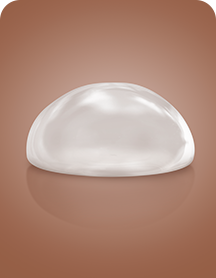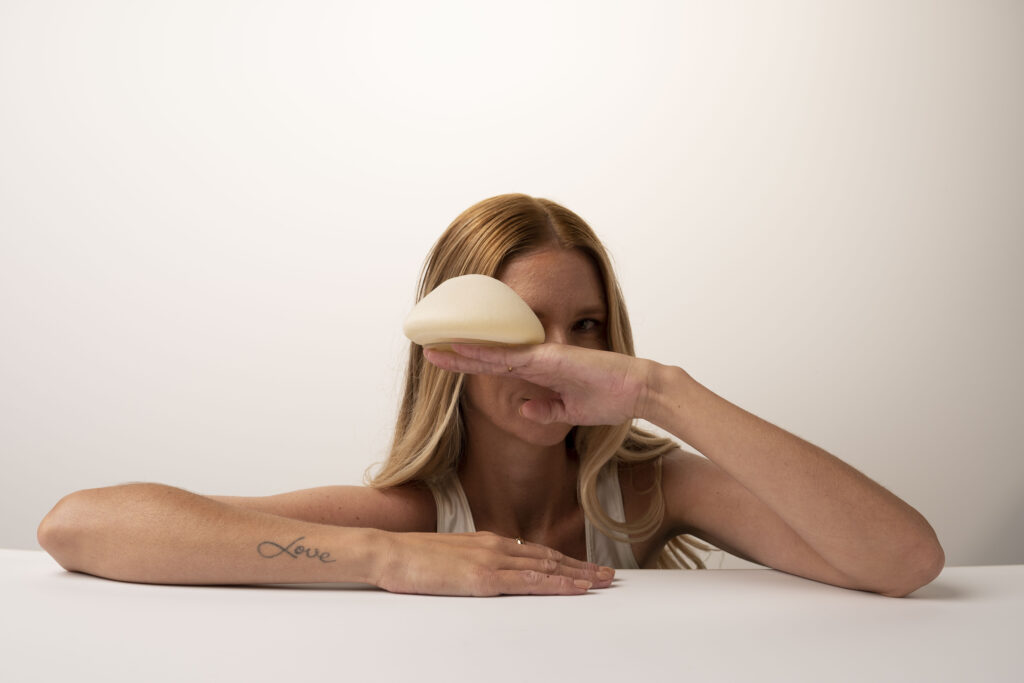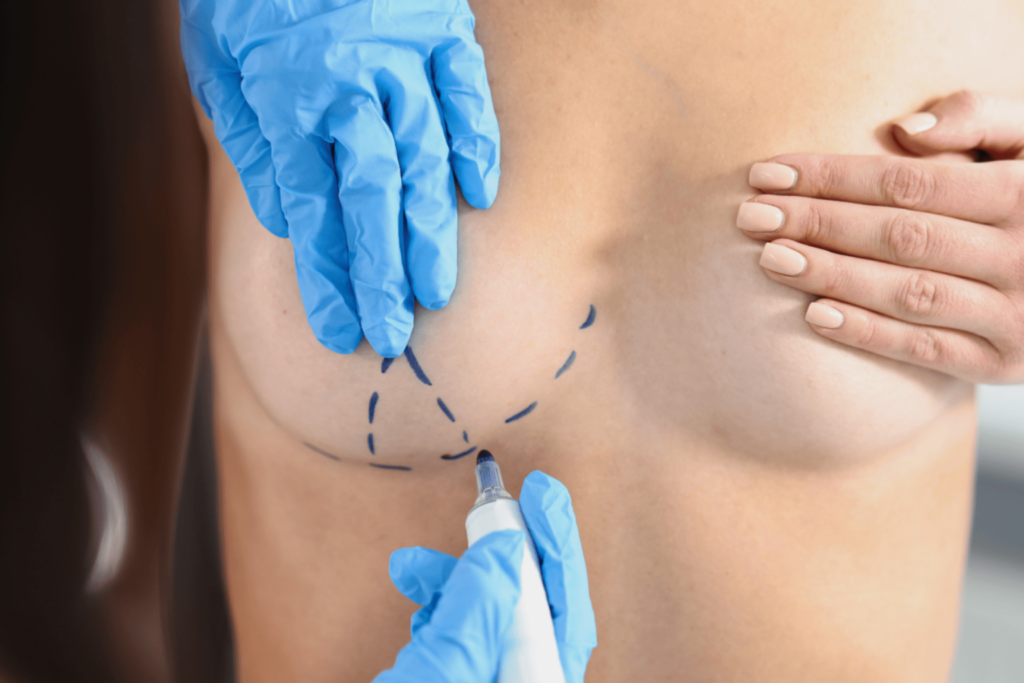International Breast Cancer Awareness Day: raising awareness with Silimed
International Breast Cancer Awareness Day highlights the vital importance of prevention, early detection, and comprehensive support for those affected by breast cancer. Discover how Silimed is contributing to this cause.
What is International Breast Cancer Awareness Day?
International Breast Cancer Awareness Day was created to increase awareness of breast cancer in society, a disease affecting millions of women worldwide. It is a moment to spotlight the significance of early detection, timely diagnosis, and holistic patient care — all critical to improving outcomes and quality of life.
Aims of International Breast Cancer Awareness Day
The core objectives of this important day are:
- Promoting early detection, as timely diagnosis significantly reduces mortality rates.¹
- Encouraging regular breast self-examinations and routine medical check-ups.
- Raising awareness of the emotional and social impact of breast cancer.
- Advocating for ongoing research and equitable access to innovative treatments.
When is International Breast Cancer Awareness Day?
Each year, 19th October marks International Breast Cancer Awareness Day. It is a time when healthcare professionals, charities, businesses, and communities around the world come together to support patients, share information, and promote scientific advancement in breast cancer care.
The importance of breast cancer visibility
Promoting visibility helps to remove stigma, encourage open dialogue, and increase participation in regular screening programmes. By doing so, we ensure more women take proactive steps in their healthcare journey.
Self-examination and medical check-ups
Monthly self-examinations and regular gynaecological check-ups are essential for detecting early changes in breast. Women should consult a healthcare professional if they notice any lumps, skin changes or dimpling, nipple discharge and unusual pain.
Organised screening programmes, such as mammography, have proven effective in reducing breast cancer mortality in women aged 50–69 across Europe.² ³
Understanding the risk factors and warning signs
Risk can be influenced by as family history, age, lifestyle habits or hormone changes can increase the risk of developing breast cancer.⁴ That’s why information and prevention are key allies to reducing the impact of this disease.
Breast reconstruction post breast cancer
Following mastectomy, breast reconstruction plays a key role in restoring both physical appearance and emotional wellbeing, a process that not only restores the physical aspect, but that also helps to recover self-esteem and supports psychological recovery.
Breast reconstruction options
There are different techniques, from autologous reconstructions (using tissue from the patient’s own body) to the use of breast implants specifically designed to offer natural, safe results.⁵
Reconstruction using breast implants can be performed by inserting a permanent implant immediately after the mastectomy (just one stage) or by inserting a tissue expander and later replacing that with a permanent implant (two stages). The first of these options is called immediate breast reconstruction and the second two-stage option is known as delayed breast reconstruction.
Breast implants and restoring confidence
Reconstruction with breast implants after a mastectomy not only restores the shape of the breast, but also an essential part of self-esteem and female identity. For many women, the recovery process doesn’t end with the removal of the tumour, but with rebuilding their body image and feeling complete and secure in themselves.
Also, advanced breast implants designs now allow for highly customised outcomes. With the biodiversity of shapes, volumes and projections —such as those offered in the Silimed BioDesign Collection— allowing surgeons to tailor implants to individual biotypes and aesthetic goals, delivering balanced, symmetrical results.
In essence, breast reconstruction not only helps rebuild the body — it restores confidence and empowers patients in their recovery journey.
Silimed’s commitment on International Breast Cancer Awareness Day
At Silimed, we understand that breast cancer impacts more than just physical health- it affects emotional and social wellbeing too. That’s why our commitment goes further than technological innovation:
Innovation and safety in breast implants
Silimed, a manufacturer with over 45 years in the breast implant market, has state-of-the-art breast implants developed using our own technology. We also offer a wide variety of breast implants with different surfaces and shapes designed to adapt to the needs and biotypes of each patient, prioritising safety.
Supporting surgeons for personalised treatment
Silimed understands that remaining up to date and learning new surgical techniques are essential to supporting and attaining personalised treatment for each patient. That’s why Silimed provides surgeons with continuous training platforms and scientific resources such as the Silimed Academy so that each intervention ensures the best result for the patient’s profile. Silimed offers women who have undergone a mastectomy the same options as it offers women who undergo aesthetic surgeries. The Biodesign line offers four different breast implant formats for different expander formats, catering to women’s different biotypes.
Solidarity and accompanying patients
International Breast Cancer Awareness Day is an opportunity to reiterate our support to all women who are on this path. We believe in the strength of solidarity, accompaniment and innovation as tools for improving lives.
On the 19th of October, International Breast Cancer Awareness Day invites us to reflect, support and act. Prevention, early detection and access to options such as breast reconstruction are pillars that give every woman the opportunity to fight against breast cancer with confidence and hope.
Silimed remains committed to partnering with healthcare professionals in providing advanced, safe, and personalised solutions — helping women to rebuild not only their bodies but their confidence and quality of life.
- European Society of Breast Imaging (2023). Screening for breast cancer – general recommendations. Insights into Imaging, 14(1), 83. Available at: https://pmc.ncbi.nlm.nih.gov/articles/PMC11399176
- National Cancer Institute (2024). Breast Cancer Screening (PDQ®): Patient Version. National Cancer Institute. Available at: https://www.cancer.gov/types/breast/hp/breast-screening-pdq
- European Commission Initiative on Breast Cancer (2023). European guidelines on breast cancer screening and diagnosis. Joint Research Centre. Available at: https://cancer-screening-and-care.jrc.ec.europa.eu/en/ecibc/european-breast-cancer-guidelines
- Biganzoli, L., Marotti, L., Hart, C. D., Cataliotti, L., Cutuli, B., Kühn, T., … & Wurdinger, S. (2020). Quality indicators in breast cancer care: An update from the EUSOMA working group. European Journal of Cancer, 86, 59-81. Available at:https://pubmed.ncbi.nlm.nih.gov/28963914/
- Mirhaidari, S., Iqbal, F. M., Siddiqui, M. R. S., & Iqbal, M. (2023). Breast reconstruction: Review of current autologous and implant-based techniques. World Journal of Clinical Oncology, 14(5), 269–285. Available at: https://pmc.ncbi.nlm.nih.gov/articles/PMC10131028
- Nano, M. T., Gill, P. G., Kollias, J., Bochner, M. A., Malycha, P., Winefield, H. R., & Wise, L. (2005). Psychological impact and cosmetic outcome of different methods of breast reconstruction. ANZ Journal of Surgery, 75(11), 940–947. doi:10.1111/j.1445-2197.2005.03556.x. Available at: https://pubmed.ncbi.nlm.nih.gov/16336382/






